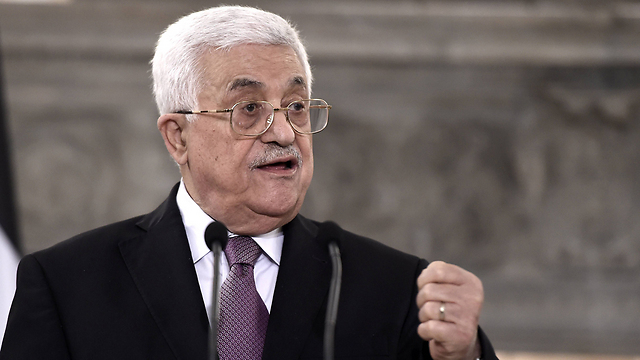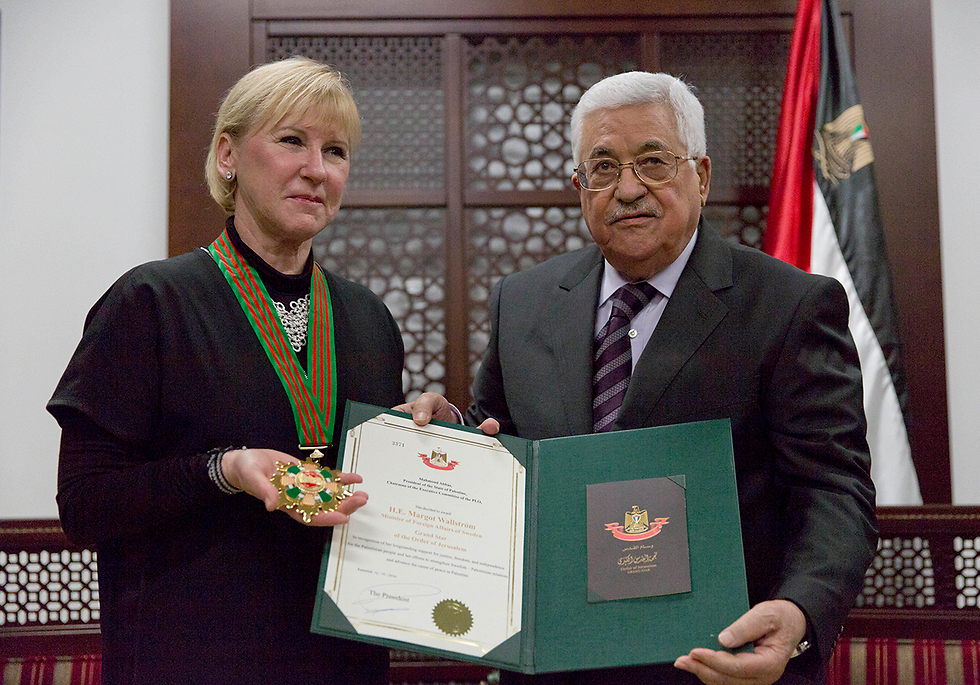Palestinian President strips immunity from five political rivals allied with chief political threat Mohammad Dahlan so that they can be ‘investigated’; three of the five ran to the Red Cross headquarters in Ramallah to seek asylum, but were ‘escorted’ out by Palestinian police.
Palestinian President Mahmoud Abbas has tightened his grip on power by stripping the parliamentary immunity of five lawmakers seen as opposing him, weeks after being reappointed chairman of the main political party.
The move follows a decision by a Palestinian court last week to sentence Mohammed Dahlan, a former Fatah party member and vocal Abbas critic, to three years in prison over the disappearance of $16 million when he was in office several years ago.

Dahlan, who frequently assails Abbas’s leadership from his self-imposed exile in Abu Dhabi, was tried, convicted and sentenced in absentia. He has dismissed the sentence as politically motivated and “ordered by Abbas”.
All five of those who had their immunity from prosecution revoked are regarded as allies or associates of Dahlan.
Hassan Al-Awri, Abbas’s legal adviser, said the attorney general had asked Abbas to strip them of their immunity so they could be “investigated over a number of issues”. He did not provide details.

Three of the five sought refuge in the offices of the International Committee of the Red Cross in Ramallah on Sunday, before police escorted them out of the building. They were not detained since they are not wanted for anything, a spokesman for the Palestinian security services said.
Shami Al-Shami, one of the five, said the removal of his immunity was an infringement of his rights. His association with Dahlan, he said, was not a crime.
“(This) was an absolute violation of Palestinian law and the constitution,” he told Reuters by phone. “If I have a personal relationship with Dahlan, this is none of anyone’s business. I should only be judged by the law.”
Some Palestinians say Abbas has achieved little during his 11-year presidency, with no progress on peace with the Israelis. While the Palestinians have achieved representation at the United Nations, efforts to stall Israel’s settlement building have failed, and the economy struggles
While Abbas has no immediate challengers, he appears to be at pains to shore up his authority amid criticism over his rule from neighboring Arab states, from the Hamas Islamist movement and from Israel.
Rare Meeting
Dahlan, a former Fatah security chief, was removed from the party’s central committee at a party congress this month, the first Fatah gathering in seven years – a reflection of the difficulty of convening delegates from around the world and the lack of issues to discuss. The four-day meeting reaffirmed Abbas, 81, as party chairman.
In the run-up to the congress, Dahlan spoke critically of Abbas’s leadership and urged his supporters to oppose him. It was seen as an attempt to undermine Abbas’s rule rather than unseat him, and position Dahlan or his allies to take over if Abbas dies or loses when the next elections are held.
But Abbas restricted the number of delegates invited to the gathering, making it harder for Dahlan loyalists to mount a challenge. The newly elected, 21-member Fatah central committee is largely made up of Abbas supporters.

Abbas’s increasingly strict rule — he has removed several opponents from their posts, issued decrees and rarely speaks to the media — has drawn criticism from within his party and from members of parliament. The latter has not met since Fatah and Hamas fought a brief civil war in Gaza in 2007, which led to Hamas seizing full control of the territory.
Several Fatah legislators issued a joint statement late on Sunday demanding the decision to strip parliamentary immunity be reversed, arguing there was no clause in the Palestinian basic law giving Abbas the right to revoke it.
“Removing immunity is conditional on the agreement of two-thirds of parliament members,” they said.
Abbas was elected president of the Palestinan Authority for a four-year term in 2005. Elections in 2009 were canceled and there is no indication of whether or when new presidential and parliamentary polls will be held.
As reported by Ynetnews
